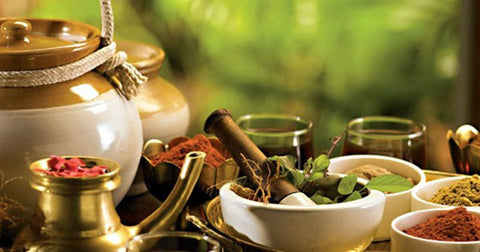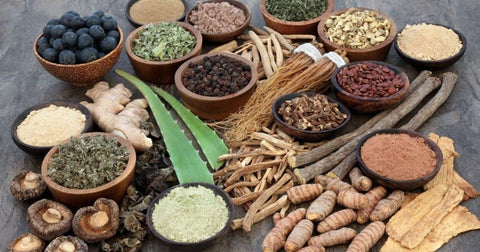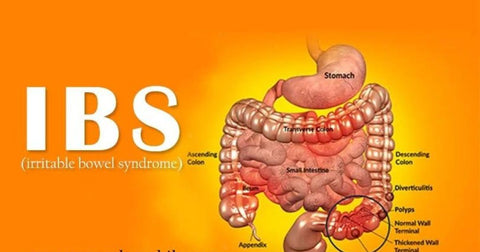Our hectic day-to-day lifestyle, physical inactivity, stress and various hormonal shifts cause some serious negative effects on our health; Ayurvedic medicine for IBS or irritable bowel syndrome is one of them. Persistent abdominal pain, intestinal spasms, diarrhea, bloating, flatulence, constipation and indigestion often characterize this serious inflammatory condition. Although it does not directly affect our life expectancy, continued pain reduces our productivity, causing depression, low stamina, weakness, and reduced social interaction.
What is the Best Ayurvedic Medicine for IBS?

Northern India is the birthplace of the centuries-old holistic approach to health known as Best Ayurvedic Medicine for IBS.
It's a type of care that addresses mental, physical, and spiritual health. It encourages you to take into account all three when handling medical concerns.
In Broad Spectrum CBD Oil, Ayurvedic medicine for IBS diarrhea, the body balances different types of energies or doshas. The three doshas are:
- Vata
- Dapha
- Pitta
Different parts of your body are under the jurisdiction of each of these doshas. Vata, for instance, regulates internal processes, including waste removal and electrolyte balance.
You may suffer from illness or disease if there's any cause why the three doshas aren't balanced. To keep yourself healthy, you must keep your doshas in harmony.
IBS is believed to occur when one of the doshas is imbalanced or when toxins are present.
Ayurvedic medicine aims to restore balance. It does this through natural treatments to eliminate the symptoms of IBS, Cannazo India. It also aims to eliminate toxins from the body.
Facts on Irritable Bowel Syndrome
- Irritable bowel syndrome, or Ayurvedic medicine for IBS problem, is a widespread disorder. It affects approximately 15-22% of the world's population.
- Irritable bowel syndrome (IBS) is distinct from inflammatory bowel disease and unrelated to other gastrointestinal conditions.
- In Ayurveda, this condition is referred to as Grahani.
- The subtype of Grahani that is related to IBS is called Vataja Grahani.
- Other names for it include mucosal colitis, spastic colon, and irritable colon.
- IBS signs last at least three months and at least three days a month.
- IBS affects women more than men.
- Some IBS patients have minor IBS symptoms. In others, the bodily and psychological symptoms are so significant that they disrupt their daily activities.
- In rare cases, inflammatory bowel syndrome causes intestinal damage.
- IBS does not raise the risk of gastrointestinal cancer.
- Most people with IBS are under 50 years old. So, it can also occur in older adults.
- The symptoms of (IBS) are unpredictable. The symptoms of IBS are sometimes even contradictory.
- Due to the various possible causes, it is not easy to prevent IBS.
Do I Have Ayurvedic Medicine for IBS in Hindi?

The ancient Ayurvedic scriptures of Susruta Samhita and Charak Samhita describe irritable bowel syndrome as Grahani, which is a mixture of abdominal discomfort and problems with normal bowel function. Known as "Agni," our digestive system performs a number of tasks, such as aiding in digestion, absorbing nutrients, and assimilating food particles. Grahani symptoms may also result from an agni dysfunction.
According to Vijaya Ayurvedic Medicine in India, Ayurveda, IBS or Grahani is mainly due to unhealthy dietary options, excessive intake of food particles that are difficult to digest, intake of foods that induce allergy, intake of low nutrient foods, overeating, eating at irregular intervals. Other physical and mental factors such as emotional problems, stress, etc. Very often, Grahani can also happen due to excessive consumption of spicy junk food or sour food.
Since an imbalance of Vata doshas in the body leads to aggravation of IBS symptoms, Ayurveda strongly recommends that IBS can be treated effectively by normalizing Vata doshas in the body. These remedies include following a specific diet aimed at treating Ayurvedic Medicine for IBS in Hindi, cleansing programs, pranayama techniques, and specific herbs that help mitigate the various underlying symptoms of Grahani.
Ayurvedic Treatments for IBS

Here are some Ayurvedic Medicine for IBS constipation steps to help promote health:
Reset your digestive method with a bland diet
To assist in resetting your digestive system, your Ayurvedic Medicine for IBS constipation practitioner might initially advise you to follow a bland diet. Warm, soft meals like mild soups and basmati rice may be a part of this diet.
The practitioner may also recommend a brief time of fasting. The objective is to minimize irritations that can result in more symptoms while allowing your body to naturally remove the Ama throughout this period.
Additionally, you may consume buttermilk. Buttermilk is widely used in Ayurvedic medicine and is believed to promote healing and lessen symptoms.
Furthermore, your healthcare professional might advise you to take medicinal ghee, which is concentrated butter. According to research, practitioners think ghee strengthens the weak Agni.
Practice yoga for all-body wellness
Yoga approaches wellness from an all-body perspective, much like Ayurvedic treatment. In addition to helping people become stronger and more flexible, yoga also aims to reduce stress and the physical symptoms of illness.
There may be yoga poses or positions that are especially beneficial for curing IBS symptoms. Sun salutations and corpse poses are two examples of this.
Try massage, meditation, or aromatherapy to reduce stress
Although the exact etiology of Ayurvedic Medicine for IBS constipation is unknown, evidence indicates that stress may have a major impact on who gets the condition and when symptoms get worse.
According to Ayurveda, stress stems from a dosha imbalance. Stress reduction methods such as massage, aromatherapy, and meditation may be helpful. It can, therefore, get rid of or lessen IBS symptoms.
Try herbal tonics to balance doshas
Supplements and herbal tonics play a significant role in Ayurvedic treatment. Which specific tonics you use will depend on the dosha or imbalance you are trying to cure. Making the appropriate choice can be assisted by a practitioner.
What are the Possible Side Effects or Downsides of Ayurvedic Medicine for IBS?
For Ages, God Herb Of Ayurveda In India and Ayurvedic medicine for IBS have been practiced. Sadly, it has yet to be thoroughly researched. Only a few clinical studies have looked at the efficacy of this kind of treatment.
Furthermore, tinctures and herbal medicines that are commonly used in Ayurvedic therapy are classified as supplements by the Food and Drug Administration (FDA). It indicates that the FDA still needs to examine or approve them.
You must notify all of your healthcare providers if you choose to attempt this kind of medication.
They need to be aware of potential interactions and adverse side effects to watch out for and prevent in the event that they need to add or modify therapies for any ailment.
Herbal Remedies for IBS (Irritable Bowel Syndrome)

According to Ayurveda, diseases result from a dosha imbalance (Vata, Pitta & Kapha). The best blend of potent herbal treatments, including the IBS Care Pack, are available from Planet Ayurveda for the Ayurvedic treatment of IBS "Grahani" (Irritable Bowel Syndrome) and CBD Full Form. We only offer natural items that are pure. They are all safe to use and have no negative side effects. Additionally, they are created by MD Ayurvedic physicians. All of the household medications are prepared without the use of chemicals, additions, or preservatives.
